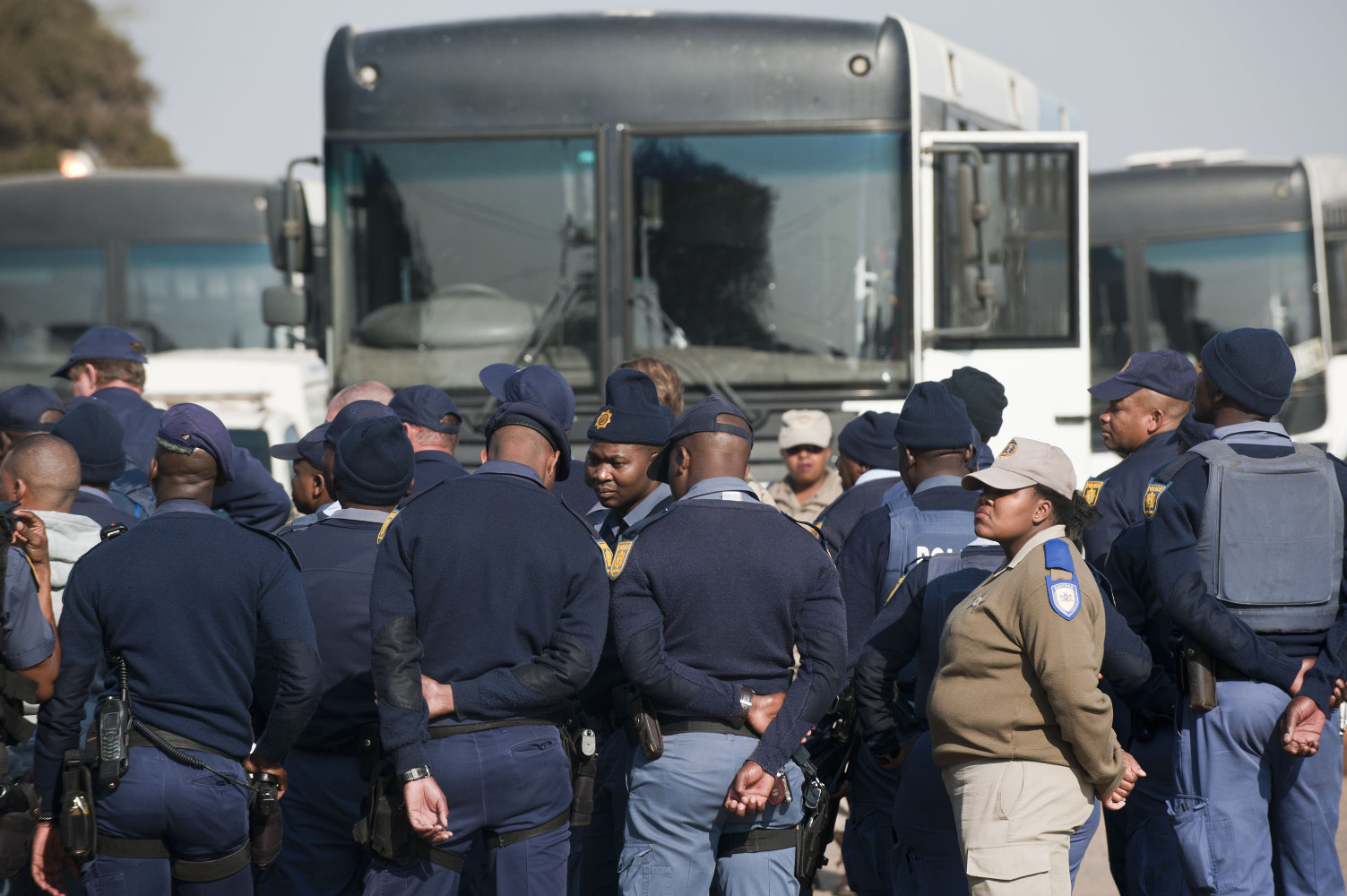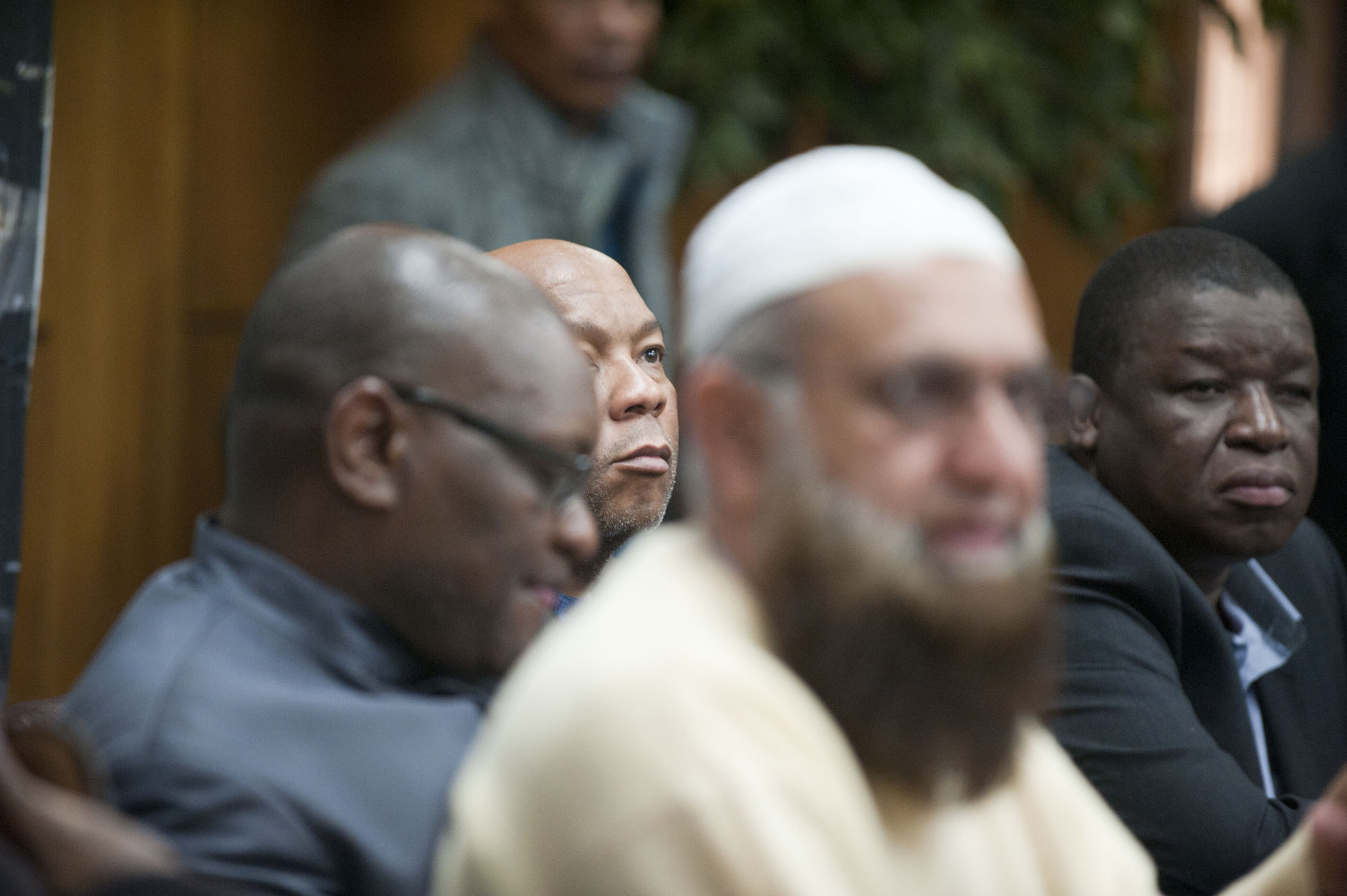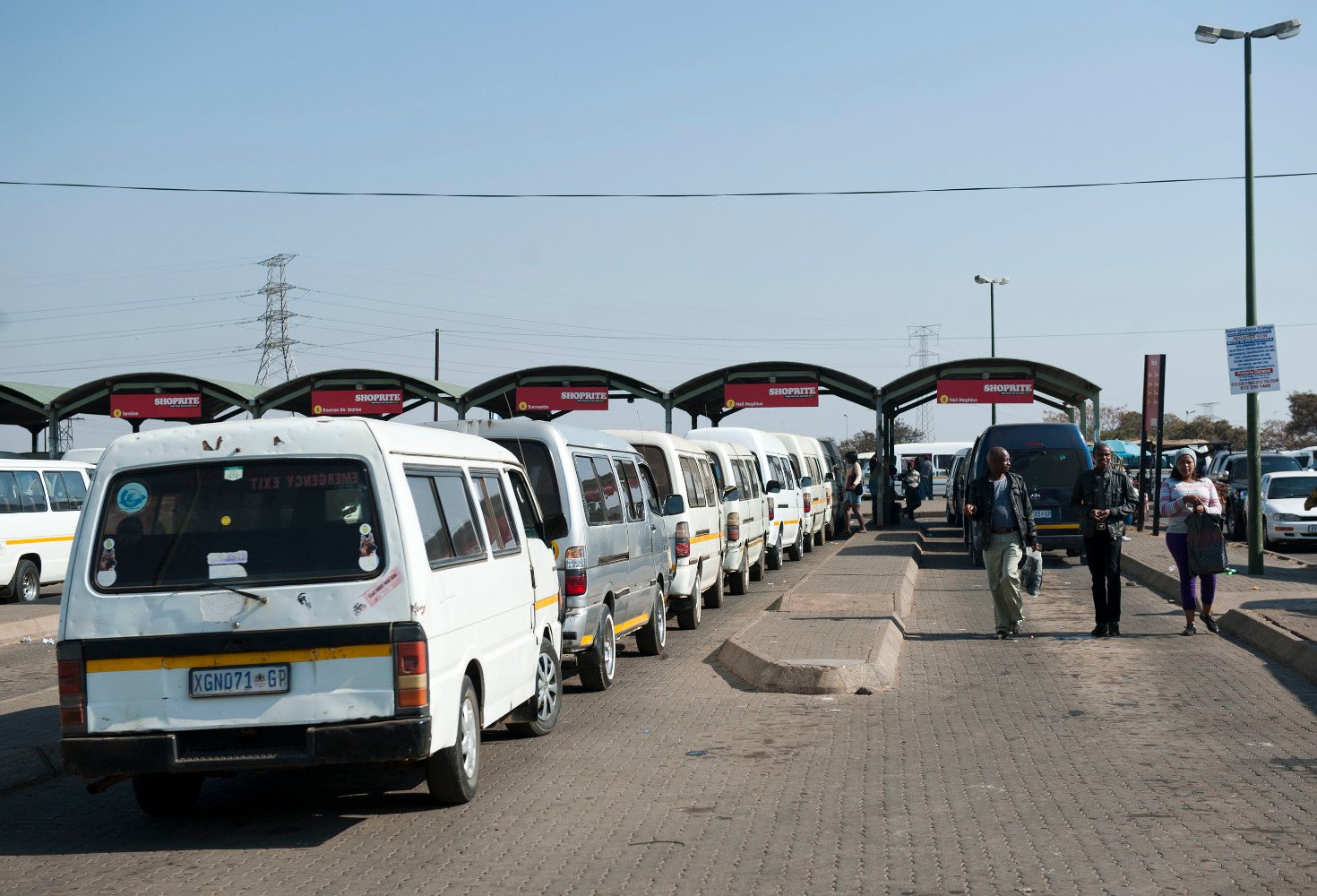Shattered window of a bus.
The Mamelodi Taxi Association (Mata) and the South African National Taxi Council (Santaco) told the Mail & Guardian on Friday that their members were not involved in the shooting of a Putco bus that left four people injured and one hospitalised. The interview took place at the Mata offices with the executive of the Mata association, the Santaco president, its secretary general and its chief strategic manager.
At issue are very lucrative routes out of Mamelodi and the contracts that the Gauteng province has awarded to a new player, Autopax, a government bus service agency. According to Gauteng MEC for transport and road, Ismail Vadi, the tendering process was closed. Vadi said there is no requirement to go on an open tender process because the arrangement was a short-term arrangement with another government agency.
Irregular procedure
But this is the problem. In an interview with the M&G on Friday Santaco president Phillip Taaibosch said the National Land Transport Act of SA makes provision for a negotiation to take place whenever a vacuum of that nature takes place. He said all affected operators, in this case the Mamelodi Taxi Association and Mamelodi Long Distance Taxi Association are both affected operators, were not called to any meeting to tender for the contract.

Taaibosch said that it was also not proper as far as broad-based black economic empowerment policy is concerned in South Africa that they as the taxi operators were not given an opportunity to prove to themselves that they could apply for and run the routes. He said this was also seen as an opportunity to grow and take advantage of the vacuum left by Putco.
Filling the vacuum
The issue began with the withdrawal of the Putco bus services from routes it had operated for over 19 years in Mamelodi. Autopax was granted an interim tender of three months to operate in the area by the Gauteng department of transport under Vadi. On Wednesday, the first day Autopax started its operations in Mamelodi, taxi operators protested by stoning the new bus service. This happened again on Thursday. The violence escalated on Friday when a Putco bus driving down Solomon Mahlangu Street was stoned and shot at leaving four people injured and one hospitalised. The incident has been termed “taxi violence” by the provincial government.
Taaibosch and the executive leadership of Mata indicated that they would not support anything to do with violence. Taaibosch said it seemed the Gauteng provincial government and the police were too quick to blame the taxi industry for the shootings that took place at around 6am on Friday and said the police investigating the Mamelodi shooting should not just look “with one eye at the taxi industry”. He said it was also possible that the drivers of the affected operator [Putco] who have lost their jobs since the bus service stopped its operations could be retaliating, but it was simple and convenient for the media and the police to fix the blame squarely on the taxi industry because the public does not know these other operators.
“The driver who was shot this morning [Friday], it was nothing to do with the taxi industry. It [the Putco bus] is an outside operation from the Mamelodi [the bus came from Mpumalanga]. So maybe an investigation needs to be done as to who was involved with that. There were passengers in the vehicle and they might have seen this particular perpetrator.

“It may have been someone they have seen driving buses or all those things, but we say let the investigation be broadened. We must not only look into the taxi industry and say these shots came from the taxi industry. There are drivers that are aggrieved who are going to protect their turf, but we don’t know those drivers. We are saying the scope should be broadened,” said Taaibosch.
Setting the record straight
Santaco’s general secretary Vernon Billet was less diplomatic. Billet told the M&G that since Santaco was formed in 2001 the violence in the taxi industry has subsided in the country. He said terming the shooting on Friday as taxi violence was mischievous and devoid of all truth.
“We don’t take too kindly to the fact that MEC Vadi is trying to pit the community against the taxi operators. What he has done, [which is] call for all communities to stand up to taxi operators, is completely out of order. He knows what the situation is,” he said.
Billet said what happened on Wednesday and Thursday when taxi operators threw stones at the government-owned Autopax services was no taxi violence but a demonstration of our unhappiness with this situation that was created by an MEC who thinks that he is above everything.
Billet said Vadi has completely failed to address the transport issues of Gauteng and he has failed in giving equal service to all transport operators in the service.
Taaibosch added that Vadi has a negative attitude towards the taxi industry. He said if Vadi continued to act in this manner he would lose the respect of the taxi industry. Taaibosch called Vadi destructive and compared him to the apartheid minister of law and order, Adriaan Vlok, and said Vadi was trying to take back the taxi industry to the old days of before 1994.
“He said, ‘I am not prepared to talk to you any further, the only thing is that I will send in the police to arrest whoever stands before the operations’.” said Taaibosch.
Demands
Vadi told the M&G on Friday his department had a five-hour long meeting on Wednesday with both Mata and Malta where the two associations demanded the department suspend its contract with Autopax and immediately start negotiation for a new contract with them. Vadi said he told the two associations that Autopax’s contract was binding.
“They insisted we withdraw the contract. They said ‘We will go back to our members and say the MEC is not prepared to withdraw Autopax services and therefore you must do what you know best’,” said Vadi.
He said the taxi industry did not have exclusive or inherent rights to routes.

However, Santaco told the M&G that that had not been the case. Taaibosch said around February this year, they [Santaco, Malta and Mata] were informed of the possibility that Putco would move out of Mamelodi by the Tshwane municipality. They were told to prepare themselves to take advantage of the opportunity that will be presented by the vacuum that will be created by Putco.
Billet said Mata then met with the councillors and the chief whip of Mamelodi about taking over the routes. The parties came to an agreement that both Mata and Malta would be considered. The associations submitted all documents requested including their new business model, a business plan and operating documents regarding how they intend to take over the bus service schedules. Billet said they were still waiting for a response from the province when the announcement that Autopax would take over the routes was made.
The real issue
But the real issue here is about subsidies and competitiveness. Vadi said the issue of subsidies has been raised by the taxi industry for the last 15 to 20 years. He said the big difference is that a bus or train service runs on a schedule and taxis did not. He said there were fixed contracts determined by the National Ministry of Transport.
“We are not saying that there will never be a day to build some form of support for the taxi industry but then they must corporatise, that’s what we have been telling them. Build and establish a company. You cant subsidise one person that has a taxi, another person that has two taxis, another person that has three taxis … if all of you come together and form a company, one company with a board of directors that you can hold accountable, then we can contract with you, a legal corporate entity and that is what we are saying,” said Vadi.
Disconnect
However, there seem to be a disconnect between the taxi industry and the Gauteng department of transport. The taxi association told the M&G that their members have been trying to respond to the requirement of scheduled stops where they will be monitored in terms of cleanliness, whether their vehicles arrive and depart on time as these are all part of the contract. Santaco said its members have done this before and cited the 2009 Confederation Cup as an example.
“But my members had to stop because we still don’t have a contract [to subsidise this as they do with buses] and we are forced continue on unscheduled services in order to compete,” said billet.
The solution as offered by the taxi industry is that the government should stop subsidising transport operators but rather subsidise the South African citizen so that they can choose which mode of transport they prefer.
“This way our prices will be the same. This is a fair right to choose. But you can’t subsidise buses so they charge cheaper prices then call that fair competition,” said Billet.